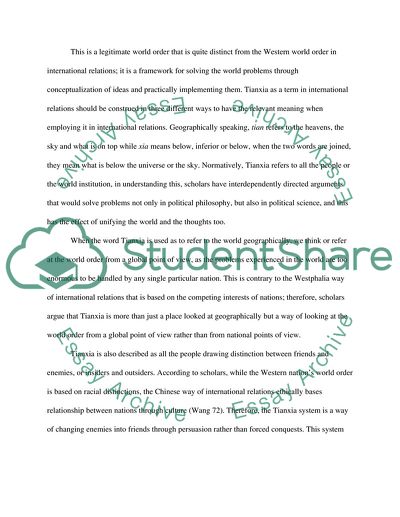Cite this document
(“Tianxia in Chinese Moral or Political Thinking Essay - 1”, n.d.)
Tianxia in Chinese Moral or Political Thinking Essay - 1. Retrieved from https://studentshare.org/culture/1473800-tianxia-international-relations
Tianxia in Chinese Moral or Political Thinking Essay - 1. Retrieved from https://studentshare.org/culture/1473800-tianxia-international-relations
(Tianxia in Chinese Moral or Political Thinking Essay - 1)
Tianxia in Chinese Moral or Political Thinking Essay - 1. https://studentshare.org/culture/1473800-tianxia-international-relations.
Tianxia in Chinese Moral or Political Thinking Essay - 1. https://studentshare.org/culture/1473800-tianxia-international-relations.
“Tianxia in Chinese Moral or Political Thinking Essay - 1”, n.d. https://studentshare.org/culture/1473800-tianxia-international-relations.


